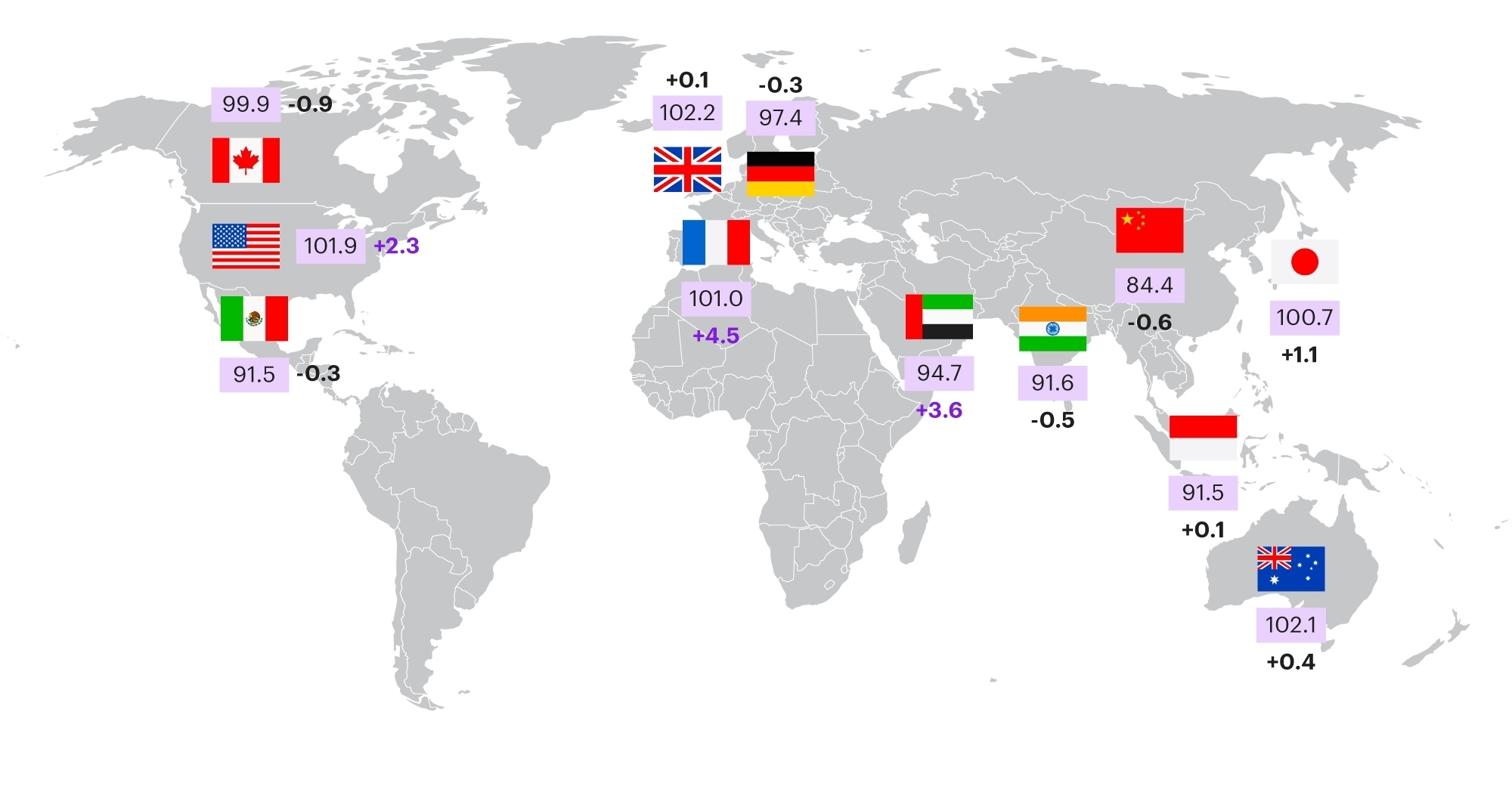
The Consumer Research Institute, an internal think tank of a global strategy and management consulting firm, has released the third quarter Consumer Stress Index, which is based on a carefully calibrated set of macroeconomic data and consumer inputs, providing a multidimensional perspective on consumer sentiment beyond the economic level. The new report found that 7 out of 12 countries, including the United States, have experienced an increase in pressure compared to the previous quarter, in sharp contrast to the index of the previous quarter.
Firstly, the Kearney Consumer Stress Index shows that consumer stress in France and the United States has increased due to political issues and ongoing economic pressures. Many consumers are trapped in a helpless situation, with political and economic uncertainties intertwined, and these uncertainties manifest differently in different countries. In some developed countries, this long-term pressure has led to a significant decline in individual and collective consumer mobility. In this world full of fatigue, consumers are seeking clear cognition, but this clear cognition is becoming increasingly difficult to find.
Global consumers can only be described as resigned to fate, with political and economic insecurity exhibiting varying levels of pressure in different countries. In the United States and some other Western countries, this has led to a sense of loss of initiative among consumers, who feel powerless in the face of ongoing uncertainty. In this constantly challenging and politically changing state, people feel that their control over their lives and future has weakened.
Secondly, the stress index tracks multiple components: annually updated macroeconomic data and consumer sentiment, the latter calculated using two elements: consumer flexibility and their initiative in perceiving options and influencing conditions; And consumer sensitivity or awareness, what are the issues that consumers are most concerned about and how they feel.
On the other hand, geopolitics and government have once again become the primary pressure factors, with more than half of the surveyed countries having consumers who are pessimistic about their own political prospects than optimistic. The stress index of respondents who hold a pessimistic attitude towards their country's political prospects is more than 7 percentage points higher than those who hold an optimistic attitude, indicating how political pressure permeates the pressure of all macroeconomic factors.
In addition, consumers care about the world around them and deal with various forms of pressure from different sources. These sources of pressure include macroeconomics, kitchen table economy, participation in the election process, and viewing the government as a fundamentally unshakable entity. The index results and analysis indicate that these indicators demonstrate the connection between political, economic, and consumer autonomy and control. The link between government and individual economic well-being is very clear, with government policies influencing economic outcomes, while individual consumers are forced to fully utilize the economic environment in which they operate.
Overall, when consumers feel pressure on their country, it often translates into financial pressure, with two-thirds of Americans relying on their salaries to make ends meet. In this situation, they need a reliable and stable source of income. Brands will not exacerbate uncertainty through measures such as reducing inflation, but rather bring a clear and stable feeling to our consumers. The advice provided to consumer facing businesses is to help provide consistency and strive for clarity in packaging, pricing, and marketing. Softer and less direct information transmission to avoid exacerbating political or technological pressures is one of the key factors in helping alleviate widespread consumer stress.

Since 2025, the conflict between the United States and Europe over the governance of the digital economy has continued to escalate.
Since 2025, the conflict between the United States and Euro…
When German Chancellor Mertz officially announced that he w…
On December 3rd local time, the copper price on the London …
The European Commission announced a new economic security s…
The European Commission announced a new economic security s…
For nearly a year, US President Donald Trump has launched a…